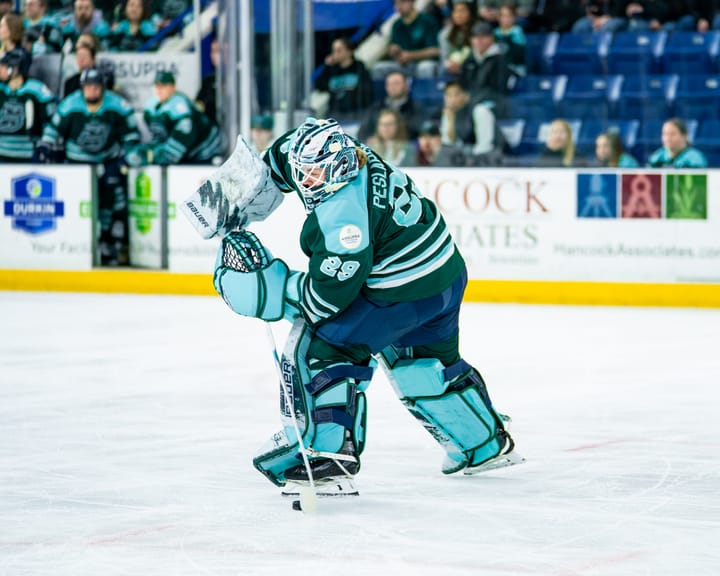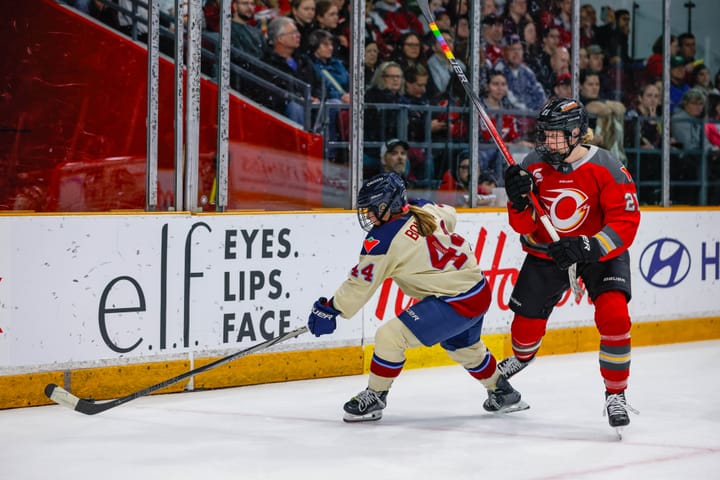NWHL, SDHL Reveal Revised Champions Cup Details
Rosie, prepare to meet Stålmannen.
The inaugaral Champions Cup between the SDHL’s Luleå Hockey/MSSK and the NWHL’s Metropolitan Riveters appears to have found a permanent home at last.
Per the NWHL on Thursday, the one-game winner-take-all series will be played at Princeton University’s Hobey Baker Rink on Sept. 29 in New Jersey. The puck drops at 1 pm ET.
To recap the Champions Cup saga: the event was announced in early June, with the Riveters due to travel from the United States to northern Sweden to face Lulea on the Swedish club’s home ice. The series was to last three games and was to include collaborative hockey clinics with both LHF/MSSK players and the Riveters.
Two months later, the event was relocated to the United States and reduced to a single game with no mention of hockey clinics for local players. Details were said to be forthcoming, and now we have them.
The Champions Cup isn’t being held on the Riveters’ home ice: instead it’s being held an hour away at Princeton, which has never hosted an NWHL game. No broadcast information for North American or European viewers has been revealed.
The capacity at Hobey Baker is 2,000 per the NWHL. The capacity of Delfinen in Luleå is over 6,000. https://t.co/ko2aA3SLmx
— Meredith Foster (@fosterwrites) September 6, 2018
The Riveters are connected to the university through alumnae Kelsey Koelzer and Fiona McKenna. Kelly Nash is currently an assistant coach with the Princeton Tigers, which feels more than coincidental in tandem with the venue choice.
While women’s hockey as a whole is a massive case study in getting creative with one’s available resources, the relocation across the Atlantic and finally to a venue where a player just happens to coach feels slapdash and harried when compared with the original plan.
Also, the Riveters are still without a head coach.
A college hockey rink is a great setting to watch a game, but it’s a different atmosphere than a top-tier professional arena like Luleå’s Coop Norrbotten Arena (better known locally as Delfinen) where both the SDHL and the men’s SHL play.
The entire Champions Cup has been downsized and there’s been no transparency in regards to the questions raised. Why move the event? Why schedule it in the first place if the plan wasn’t sustainable? Why risk straining a new international relationship?
If the event is a success, these questions will die down. If not, the demand for answers will only grow.





Comments ()